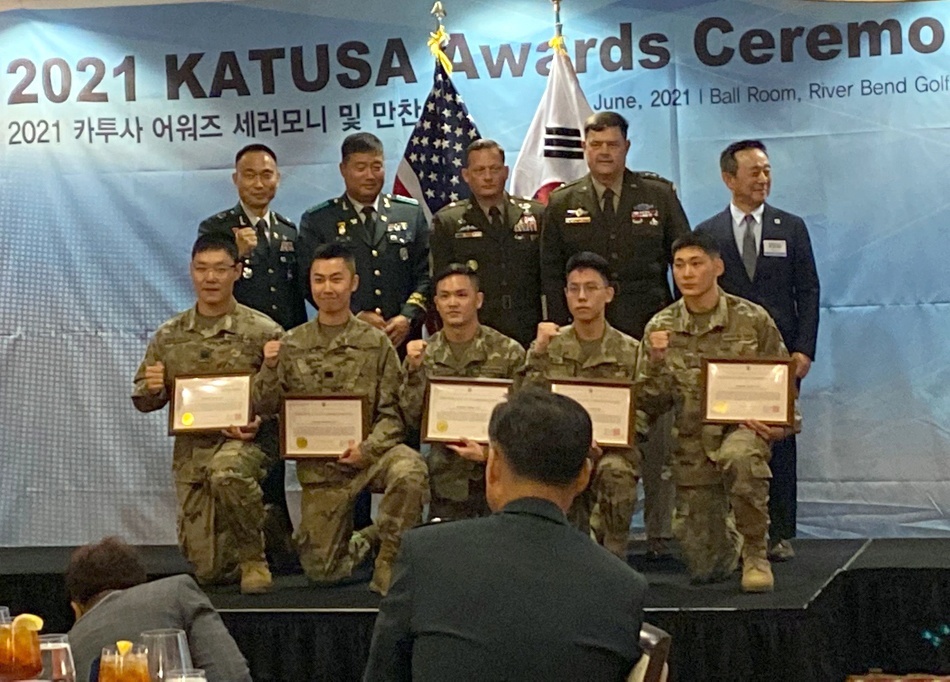 |
Sgt. Baik In-chul (front row, center) is one of five Korean soldiers to be recognized with a Best KATUSA Warrior award during an event at US Army Garrison Humphreys, South Korea, on June 16, 2021. (US Army Medical Logistics Command/Disclaimer: The appearance of US Department of Defense (DoD) visual information does not imply or constitute DoD endorsement) |
Despite efforts by the military to introduce a culture that better respects soldiers’ rights, young Korean men still favor an alternative to their mandatory military service: the Korean Augmentation to the United States Army.
Last week, the military loosened rules on hairstyles that can be worse by conscripts, in its latest move to drop discriminatory practices and boost morale following a number of scandals involving allegations of abuse and subsequent cover-ups.
Nevertheless, KATUSA -- a branch of Army soldiers who work for the Eighth US Army stationed here as part of the joint defense against North Korea -- remains a more attractive choice, says Lee, 25, who completed his service last year through the program. He asked to be identified by his surname only.
“We have to put life on hold and two years are taken away, or that’s what most draftees feel at least. But there is more breathing room, where you can do whatever you find productive on the sidelines, if you join the program,” Lee said. All able-bodied Korean men take part in active duty for at least 18 months.
The program selects conscripts with English proficiency to assist American soldiers. Those conscripts report to the Korean Army but enjoy some privileges extended to US troops stationed here.
Unlike other conscripts, KATUSA soldiers live either in pairs or alone at their base, a practice many say helps avoid the abuse that often takes place inside barracks where most Army conscripts live in groups of at least five or six. Within these living situations, bullying and hazing, and sometimes crimes, are often reported.
KATUSA soldiers are given more free time to use for their own good, Lee added, saying they can leave their post on weekdays – a leave of absence that average Army conscripts would find difficult to get because they would need special permission from their commanders.
Lee said he had taken part in annual drills, like other conscripts, but he never felt they were as life-threatening or exhausting as he had heard from his Army friends.
Meanwhile, Jin Han-yul, who was discharged from the program in 2014, said it offered a better environment, but noted that had not always served him well.
“The American soldiers didn’t really expect much from us. They knew we’re just there punching the clock. I didn’t feel I really belonged there,” Jin said, adding luxuries, like less emotional and physical toll of conscription and more free time, came at the expense of not being recognized for the work he had done.
But demand for the program will persist because those benefits are what draftees desperately want when they are "dragged into" mandatory military service, according to the 29-year-old student.
“And we should allow everyone the chance to apply for the program more than once,” Jin said. The military put a cap on the number of applications a soldier can make to the program because many conscripts were applying multiple times.
“It’s totally unreasonable. At least let us decide when we make the two-year trip – be it sooner or later.” The military will announce Thursday the names of 1,760 conscripts that will join the program next year.
By Choi Si-young (
siyoungchoi@heraldcorp.com)








